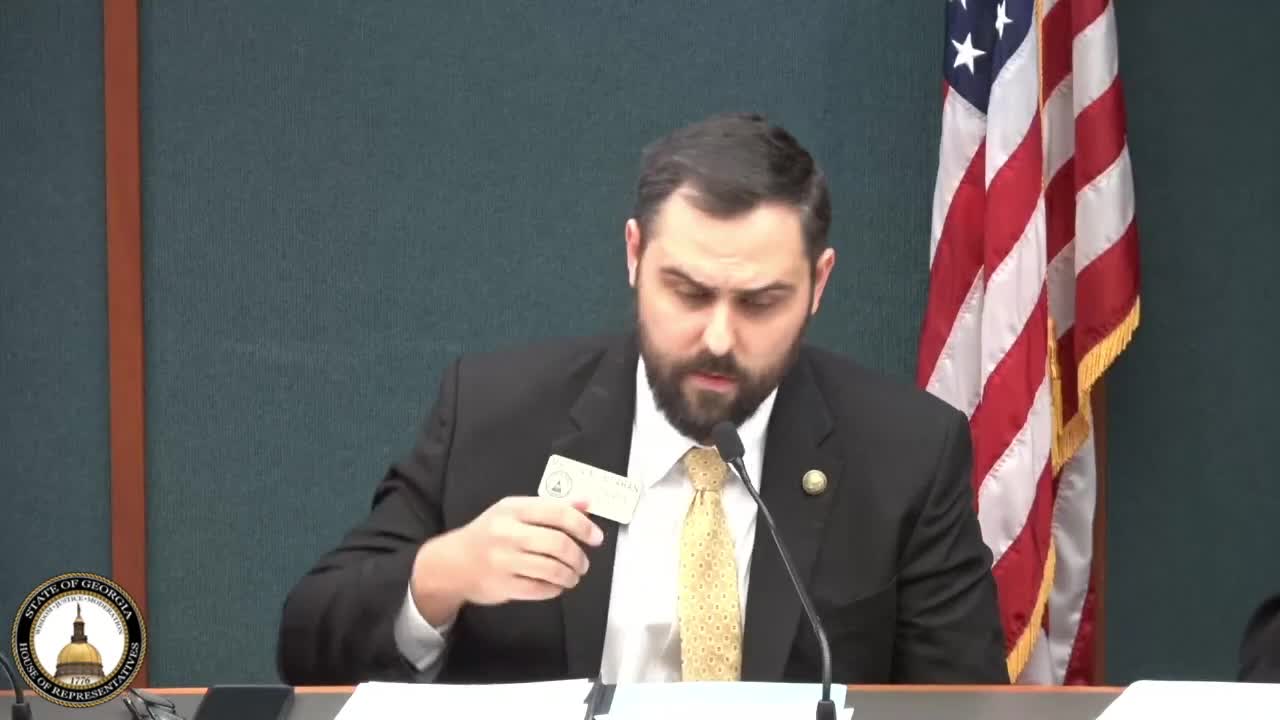Committee considers in-person DUI courses amid online learning concerns
March 21, 2025 | 2025 Legislature Georgia , Georgia
This article was created by AI summarizing key points discussed. AI makes mistakes, so for full details and context, please refer to the video of the full meeting. Please report any errors so we can fix them. Report an error »

The Georgia Legislature is considering significant changes to the way driving under the influence (DUI) offenders complete their rehabilitation courses. During a recent committee meeting on March 21, 2025, lawmakers discussed the potential benefits of allowing online DUI courses, which could improve accessibility for individuals who may struggle to attend in-person sessions.
One key point raised was the transportation challenges faced by offenders, particularly those living far from the nearest DUI school. A committee member highlighted that traveling to and from these schools could take up to four hours a day, making it difficult for individuals without a driver's license to comply with the requirements. This concern underscores the need for more flexible options in the rehabilitation process.
While some lawmakers expressed support for online courses as a way to increase participation, others emphasized the importance of in-person sessions. They argued that these gatherings provide a communal environment that fosters accountability and rehabilitation. A representative noted that the current system, which includes online options, lacks proper oversight, potentially allowing offenders to engage in irresponsible behavior during their courses.
The discussion also touched on the seriousness of DUI offenses, with legislators acknowledging the need for effective rehabilitation rather than mere punishment. Some members advocated for a balanced approach that would allow for both in-person and online options, ensuring that offenders have access to the help they need while maintaining the integrity of the rehabilitation process.
As the committee continues to deliberate, the outcome of these discussions could reshape how DUI offenders in Georgia fulfill their rehabilitation requirements, potentially making it easier for them to reintegrate into society while addressing public safety concerns. The legislature is expected to revisit this topic in the coming year, indicating a commitment to finding a solution that meets the needs of both offenders and the community.
One key point raised was the transportation challenges faced by offenders, particularly those living far from the nearest DUI school. A committee member highlighted that traveling to and from these schools could take up to four hours a day, making it difficult for individuals without a driver's license to comply with the requirements. This concern underscores the need for more flexible options in the rehabilitation process.
While some lawmakers expressed support for online courses as a way to increase participation, others emphasized the importance of in-person sessions. They argued that these gatherings provide a communal environment that fosters accountability and rehabilitation. A representative noted that the current system, which includes online options, lacks proper oversight, potentially allowing offenders to engage in irresponsible behavior during their courses.
The discussion also touched on the seriousness of DUI offenses, with legislators acknowledging the need for effective rehabilitation rather than mere punishment. Some members advocated for a balanced approach that would allow for both in-person and online options, ensuring that offenders have access to the help they need while maintaining the integrity of the rehabilitation process.
As the committee continues to deliberate, the outcome of these discussions could reshape how DUI offenders in Georgia fulfill their rehabilitation requirements, potentially making it easier for them to reintegrate into society while addressing public safety concerns. The legislature is expected to revisit this topic in the coming year, indicating a commitment to finding a solution that meets the needs of both offenders and the community.
View full meeting
This article is based on a recent meeting—watch the full video and explore the complete transcript for deeper insights into the discussion.
View full meeting
